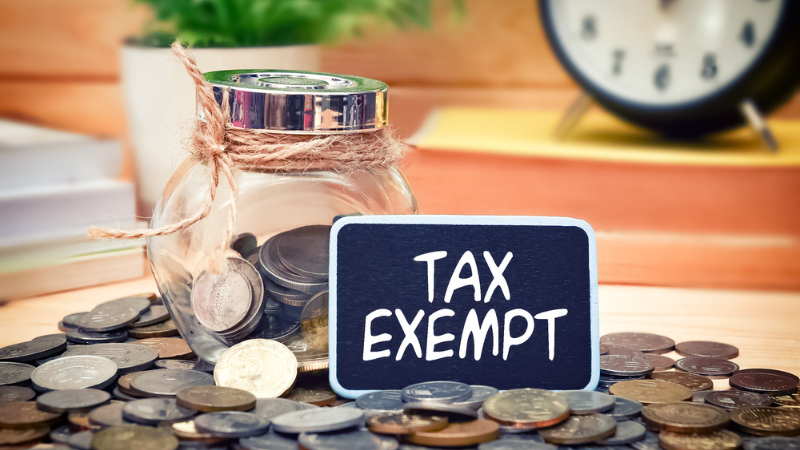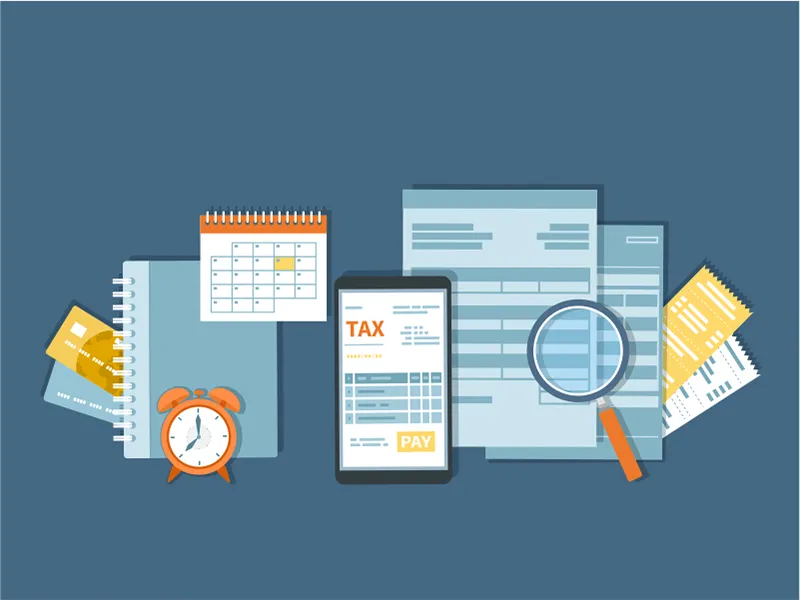
Owning a home is one of the major milestones for any individual. However, with our fast-paced and ever-moving lives, we often tend to move places, and establishing roots takes a bit of a back seat. At such times having a home on rent is a very good option. But do you know you can get many tax benefits while paying the rent for your home? Read on to know what tax benefits are available on the rent paid for your home.
Read More: Understanding House Rent Allowance
Tax benefits for paying rent and staying in another city
If you are a salaried person and staying away from your home, you can easily rent a place in the city of your work and pay rent for the same. As compensation for your accommodation, your salary structure would often include HRA (House Rent Allowance) which will be an allowance provided by the employer for accommodation expenses or covering rent for your house. This HRA is a taxable allowance but taxpayers can also claim a deduction on the same as per the provisions of the Income Tax Act, 1961. Deduction on HRA can be claimed by salaried taxpayers under section 10(13A) as well as self-employed taxpayers under section 80GG. The calculation of HRA depends on many factors like the quantum of salary, the rent actually paid by the taxpayer, the location where the taxpayer is residing, and the amount of HRA received by the taxpayer.
As per the provisions of the Income Tax Act, the amount of HRA deduction is calculated to be the lower of the following,
- Actual HRA received
- 50% of [basic salary + DA] for those living in metro cities (Delhi, Kolkata, Mumbai or Chennai) or 40% of [basic salary + DA] for those living in non-metros
- Actual rent paid (-) 10% of basic salary + DA
Taxpayers should note that they need to submit the PAN card of the landlord in case the annual rent payment is more than Rs. 1,00,00
Tax benefits available in case of paying rent but not receiving HRA
Section 80GG provides tax benefits on the rent paid by self-employed taxpayers or employees who do not receive any HRA. This provision was introduced with the intention of easing the tax burden of such taxpayers and extending the benefit available under section 10(13A). Under this section, self-employed taxpayers and HUFs are also eligible to claim tax benefits on paying rent for their homes.
To be eligible for this deduction, the following conditions must be met –
- You should not receive HRA from your employer.
- You or your spouse or minor child should not own a residential accommodation in the city where you are employed.
- If you or your spouse owns a residential property in any other city, you should not be claiming any tax benefits on it.
The maximum deduction available under Section 80GG is the least of the following amounts:
- Rent paid minus 10% of your total income.
- 25% of your total income.
- Rs. 5,000 per month.
To claim this deduction, you need to file Form 10BA along with your income tax return, declaring the details of the rent paid and other relevant information.
Tax benefits available on paying rent to family members
Did you know that you can reduce your tax liability even if you are staying with your parents? Yes, you heard that right. Taxpayers can claim a deduction under section 80GG of a maximum of up to Rs. 60,000 while they live with their parents.
It is important, however, that these rental transactions are genuine otherwise you can face the brunt of the Income Tax authorities. To establish the authenticity of the arrangement, it is advisable to have a formal rental agreement in place. This agreement should outline the terms and conditions of the tenancy, including the rent amount, duration of the agreement, and other relevant details.
It is also equally important to maintain proper documentation as evidence of rent payment which can include bank transfers, digital payment receipts, or any other form of financial transaction records that demonstrate the transfer of rent to the parent’s account. Furthermore, your parent has to declare the rent income in their income tax return under the head ‘Income from House Property’.
When it comes to paying rent to your spouse, the Income Tax Department earlier did not allow it. However, recently the Income Tax Appellate Tribunal, Delhi ruled that the HRA exemption cannot be denied solely on the basis that rent is paid to the spouse. Ruling in this case said that if the spouse has the resources to purchase the house and the house is solely under their name, the assessee can pay the rent and claim the HRA benefit. However, in case the spouse is not earning or does not have the resources to own the house, the rent income will eventually be clubbed in the hands of the assessee paying rent.
Tax benefits available on paying rent and claiming home loan benefits
If you find yourself in a situation where you are paying rent for a separate accommodation while also owning a self-owned property bought through a loan, you can still claim tax benefits for both the rent paid and your home loan. The tax benefits for each aspect are claimed separately and can provide you with some relief.
The benefit of rent paid can be claimed under section 10(13A) or section 80GG as the case may be. Additionally, if you have taken a loan for your self-owned property, you can claim tax benefits on both the interest and principal repayment. Taxpayers can claim a deduction for the interest paid on the home loan up to Rs. 2,00,000 per year under Section 24(b) of the Income Tax Act.
This limitation applies to a self-occupied property. However, if the property is rented out, there is no limit on the deduction for interest paid, meaning you can claim the entire interest amount as a deduction. As for the principal repayment, you can claim a deduction under Section 80C of the Income Tax Act, with an overall limit of Rs. 1.5 lakh, along with other eligible investments. This deduction applies to the principal amount repaid on your home loan.
Conclusion
Tax benefits for rent paid are provided in order to lower the ultimate tax liability of the taxpayers. With the rising cost of living and the rents across the country, these benefits provide the necessary relief from the amount of the total tax that is paid by the taxpayers. However, it is important to understand and meet all the necessary conditions to be eligible for these tax benefits. If a taxpayer is not eligible for tax benefits on paying rent for their homes and yet claims them, they can attract the penal provisions of the Act and end up paying a higher amount of tax.
FAQs
Yes. A taxpayer living with their parents can claim HRA exemption and deduction under section 80GG provided they can submit sufficient proof of rent agreement and actual rent payment. The parents in this case will have to declare the rent received as their income under their ITR.
To claim HRA tax exemptions, employees need to provide certain documents such as a rent agreement photocopy, PAN card details of the landlord for rents exceeding Rs. 1,00,000, and rent receipts including details like dates, names, PAN card details, address, duration of stay, and a revenue stamp with the landlord’s signature.
When an individual’s HRA (House Rent Allowance) is up to Rs. 3,000 per month, they can claim HRA without presenting rent receipts. However, if the HRA amount exceeds Rs. 3,000, rent receipts become necessary as supporting documents to claim HRA.
Yes. It is necessary to provide the PAN Card of the landlord if the annual rent payment is more than Rs. 1,00,000.


























